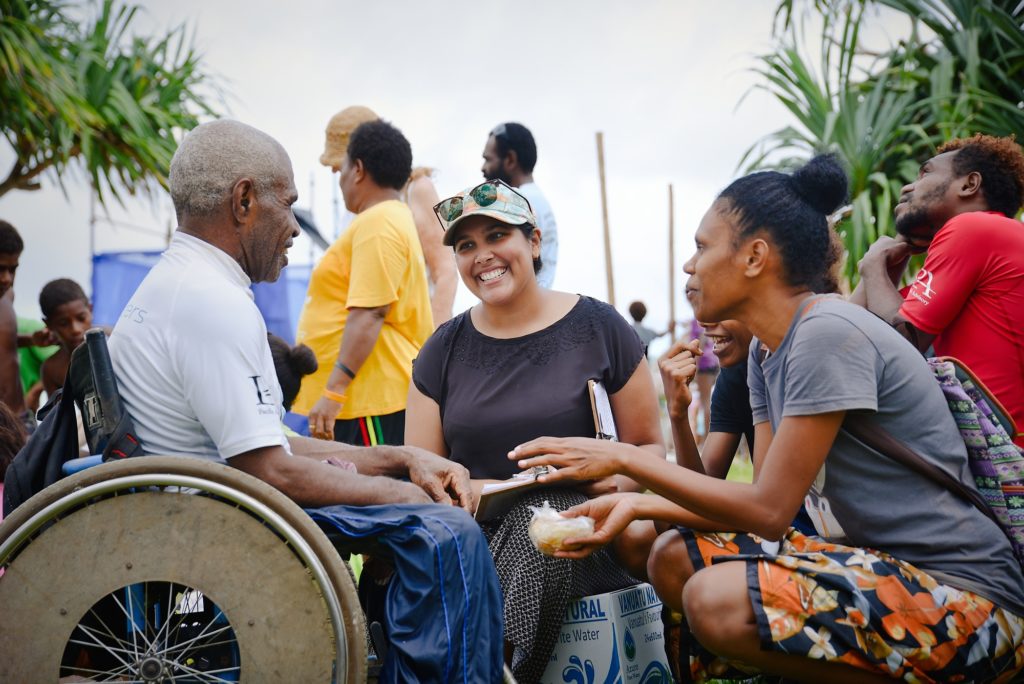4 min read
So often, it takes a significant milestone to grant us permission to look back on how far we’ve come. In a world that tells us to move faster, we can neglect to join the dots and acknowledge the significant moments and people who have shaped who, and what, we have become. Last month, AVI (Australian Volunteers International) did just that as we celebrated 70 years of International Volunteering for Development.
Current and former volunteers along with supporters, staff and partner organisations came together to take a walk through history with AVI. There, we reflected on seven decades of people-to-people development and the transformational impact of this work as well as the countless life-long friendships made along the way.
It’s certainly been a journey.
A concept which emerged as a response to skills shortages throughout the region and a desire to truly know our neighbours has grown into a world-class people-to-people development organisation. Indeed, those seeds planted in 1951 became a movement that has seen tens of thousands of skilled Australian volunteers connected with more than 3,000 partner organisations in 89 developing countries to support their self-identified development needs. It has also seen AVI’s development approach replicated in numerous countries around the world.
While this special occasion provided an opportunity to reflect on our achievements and the myriad of ways we have adapted and changed over the years, it also served as a poignant reminder that the central purpose for our existence has remained steadfast. Throughout its evolution, AVI’s ethos of working side by side with colleagues in developing countries through relationships founded on mutual respect, trust and reciprocity has never wavered.
Leading on localisation
As a sector, we are constantly evolving – finding new and innovative ways to remain relevant, respond to emerging needs and deepen our impact. In recent decades, this has seen AVI expand its presence and more closely examine its role and relevance in the 27 countries we currently operate.
A sector-wide focus on decolonisation has led to increased efforts to support localisation across all AVI’s programs. In practice, this means prioritising the lived experience of local individuals and communities as the most powerful source of knowledge. Only when this occurs can we begin to truly challenge the roots of inequality and build genuinely sustainable solutions to some of the most entrenched development challenges.
Increased participation of the most important voices in the room – our partner organisations and their communities – in any consultation process is a process AVI continues to prioritise to ensure all programs we facilitate are co-created. This representation of the people whose goals we exist to support means they remain in the driver’s seat for the whole journey, building dedicated opportunities to provide feedback and discuss new, improved ways of moving forward. The success of this approach, however, can only be supported and maintained by our incredible local staff and the cultural and contextual knowledge only they possess.
When the ‘unprecedented’ occurs
Of course, there’s nothing quite like an international travel ban to make you assess the core value of your work. While AVI is a volunteer sending organisation, it’s so much more than that.
Following the safe repatriation of skilled Australians on assignment, we rapidly deployed virtual offerings to ensure continuation of skills exchange through a number of our programs including the Australian Volunteers Program, Student Programs, the Child Safe Volunteering Hub and the Solomon Islands Medical Partnerships for Learning, Education and Research (SIMPLER).
The capacity-building of local organisations is now more important than ever and while these new modalities can never replicate one of the greatest strengths of people-to-people development – doing life together – they have ensured this critical work can continue. They have also allowed us to increase our breadth of participation, accessibility and reach new locations.
If we didn’t know it before, we now know AVI is highly flexible in the face of a radically modified operating context and our durability can be found in the respectful and trusting partnerships we have built over the past 70 years.
Not only have these 20 months taught us we can survive the greatest contextual adjustment in the sector’s history, it has also taught us we can turn adversity into opportunity and emerge stronger than ever.


















